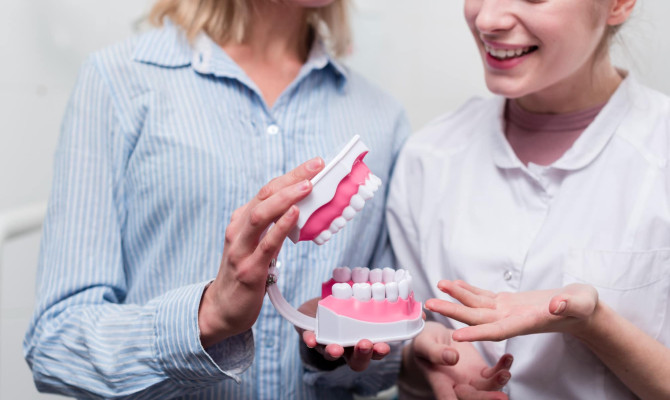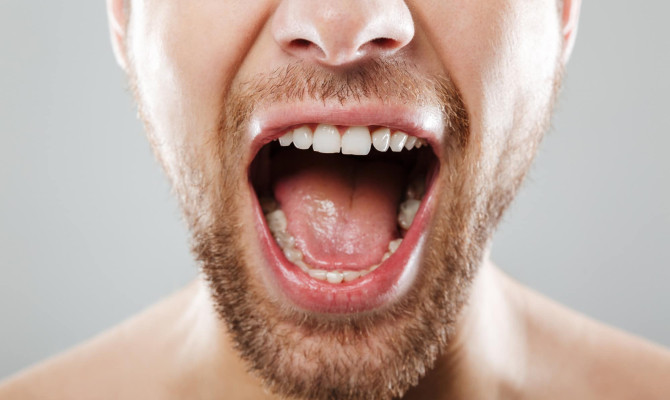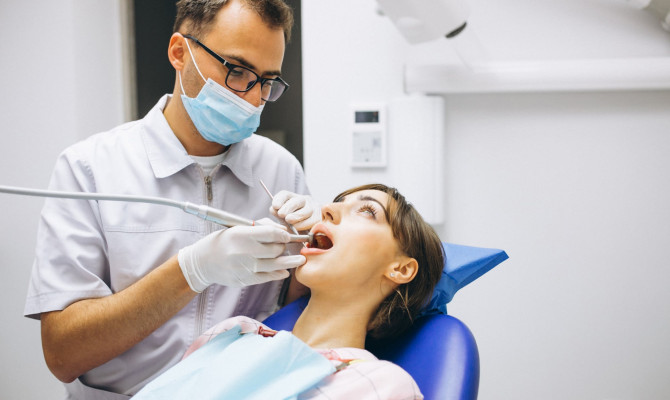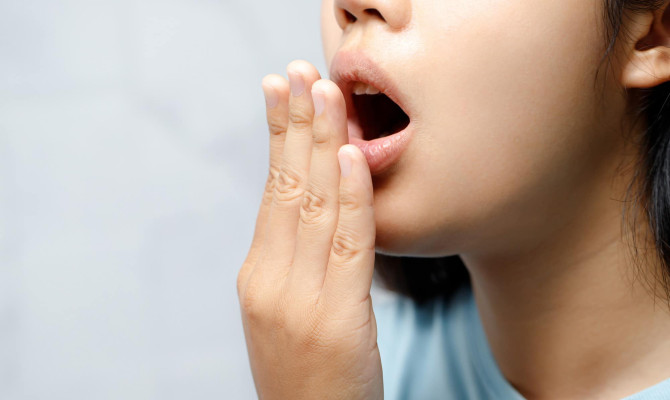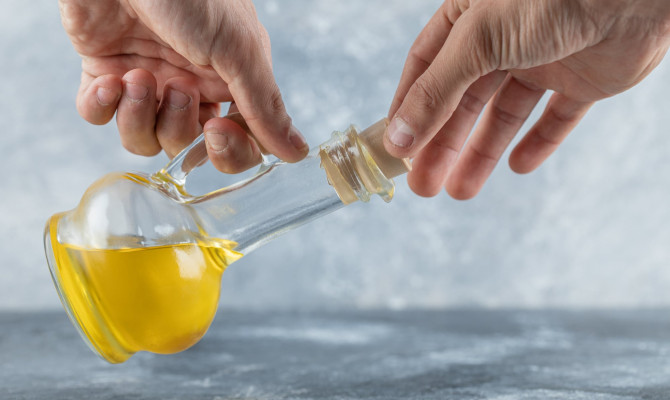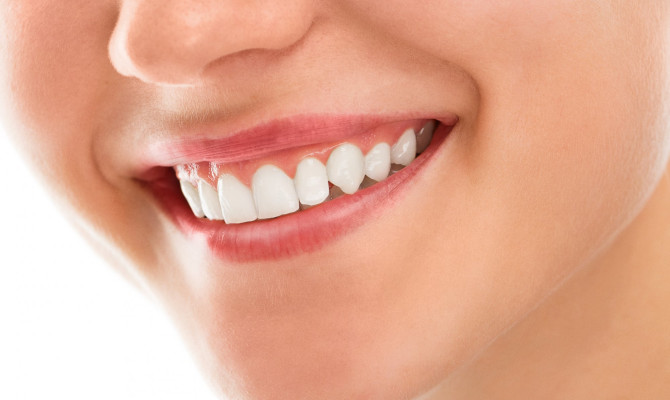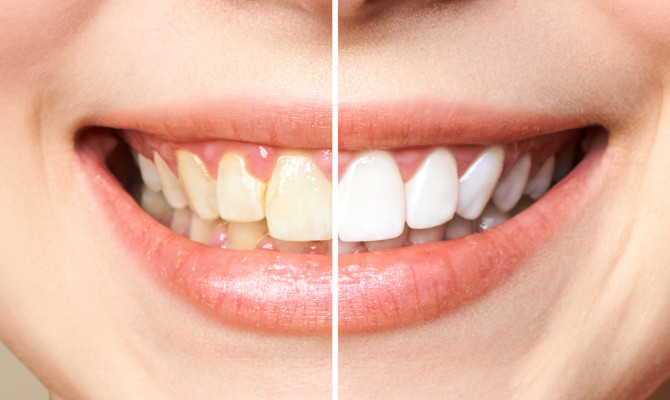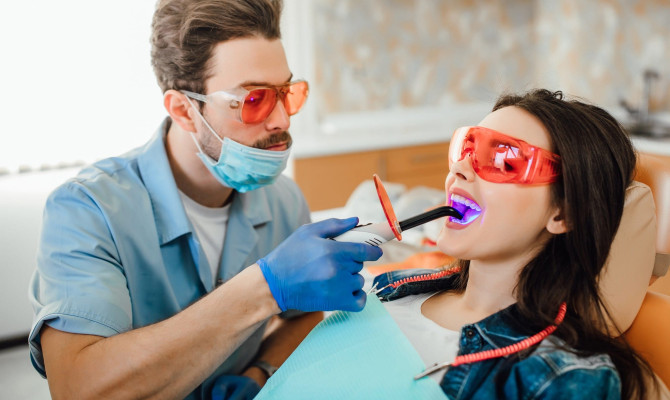Mouth Guard : What do I need to Know?

- Mouth Guard
- 16 Aug 2023
Overview
What is Mouth guard?
Mouth guards, commonly called mouth protectors, are dental devices worn inside the mouth to lessen damage to the teeth and surrounding tissues. There are numerous varieties of mouthguards available, and dentists all around the globe recommend them for a variety of reasons. A well-fitted mouthguard should not obstruct speech and should be protective, comfortable, durable, tear-resistant, tasteless, odorless, affordable, and easy to use. This article describes several mouthguard forms, their intended use, how they function, their limitations, and how to care for them effectively.

Types
Types of Mouth guard
Based on how they are made, they are of two types, namely
- Store-bought mouth guards.
- Custom-made mouth guards.
Store-bought mouth guards
They can be purchased from any sports store or drugstore.
They can be of two types as follows
- Stock mouth guards.
- Boil to bite type.
Stock mouth guards
- Out of the package, they are ready for wear.
- These are pre-formed and are available at an affordable price.
- Sadly, they often do not fit properly.
- They might be heavy, making breathing and speaking difficult.
Boil to bite mouth guards
- These mouthguards might fit more comfortably than stock mouthguards.
- Before being placed, they are made pliable in boiling water so that they will mold to the mouth’s contours.
- While using them, adhere to the manufacturer’s recommendations on the cover.
What are custom-made mouthguards?
- Custom-made mouth guards – created by a dentist for every individual.
- Because they have been customized for fit and comfort, they are more costly than the other kinds.
- The most effective mouthguard is the one a person’s dentist has built specifically for that person’s mouth.1Types| Researched based study from Mouthhealthy.org
Neuromuscular mouth guard
- A Neuromuscular mouth guard (NM) retains the mouth in a specific bite posture where the joints and muscles are at their most relaxed, resulting in greater power.2Types| Researched based study from Researchgate.net
- By reducing background muscle tension, the biting position helps the person’s balance and enables more effective use of their body.
Braces guard
- For the best comfort and protection, these mouthguards will be manufactured specifically to suit the mold of a person’s braces and brackets.
- Orthodontic patients can eat, drink, and sleep using brace guards, which are clear, thin, protecting strips with maximum adherence.
- The players’ cheeks and the inside of their lips are also protected against injury with ortho guards.2Types| Researched based study from Researchgate.net
Benefits
What does a Mouth guard do?
A mouth guard serves a variety of purposes, such as:
- Serves as a cushiony barrier between the teeth, cheeks, and lips.
- Directs the forces of blows in a different direction.
- Offers wearers psychological support while engaging in athletic activities.
- Prevents direct contact between the upper teeth and the lower teeth.
- Reduces nerve damage by serving as a stress absorber between the upper and lower jaws 2Benefits| Researched based study from Researchgate.net
- Aids in maintaining the tongue’s position so it doesn’t slip back.
- To widen the airway, some mouth guard varieties assist in moving the lower jaw forward.
Uses

Uses of a Mouth guard
One can use a mouth guard for the following
- In sports to prevent injuries.
- Prevents teeth grinding.
- Prevents snoring.
- Manages sleep apnea.
In sports to prevent injuries
There is an increased chance of falling or suffering facial injuries in some sports and activities, and mouth guards can help prevent them.
- Mouthguards protect the lips, tongue, and cheeks from damage caused by teeth during any injury.
- Prevents bruises and injuries like lacerations and concussions during any trauma.
- Prevents tooth dislocation or fracture.
- Prevents lower jaw fractures around the TMJ or jaw line.
- Prevents a possible neck injury during sport.
- When players are adequately protected for their head and neck, they feel more confident and forceful.
Prevents teeth grinding
- Grinding the teeth and clenching, especially at night, are symptoms of bruxism, a movement problem associated with sleep. The symptoms include tooth discomfort, jaw pain, and sore gums.
- Wearing a custom-made mouthguard while sleeping can assist in keeping the upper and lower teeth apart so they do not harm each other from the force of grinding or clenching and also reduces jaw pain.
Prevents snoring
- Mouth guards that are specifically made to stop snoring are available, and they function by either holding the tongue and preventing it from slipping back into the throat or moving the lower jaw forward to clear the airway.3Uses| Researched based study from Sleepfoundation.org
Manages sleep apnea
- The mouth guards for sleep apnea are so different from the ones we can buy at the store because they are made to assist people in moving their lower jaw forward while they sleep, which can free up the airway or move the tongue forward.4Uses| Researched based study from Sleepfoundation.org
Need
Who needs it?
The following individuals may need a mouth guard
- Children or adults who engage in contact sports like boxing, ice hockey, wrestling, football, kickboxing, basketball, etc.
- Individuals who engage in non-contact activities like gymnastics, skating, mountain biking, etc.
- Athletes or sportspersons who are braces-wearers.
- Those who frequently snore or grind their teeth at night.
- Those who experience obstructive sleep apnea.
Limitations
Limitations of using Mouth guard
The following are some obstacles to utilizing mouth guards
- The mouth feels dry.
- Poor retention.
- Disturbances to breathing.
- Poor fit – most often in store-bought items.
- Interferences when speaking.5Limitations| Researched based study from Nature.com
- Custom guards are pricey and require dentist visits.
- Young people around do not have enough awareness.
Care
How to care for a Mouth guard?
Since a mouth guard spends a lot of time in the mouth, people should keep it clean and safe by doing the following:
- Never put on a mouthguard without first brushing and flossing your teeth.
- Before inserting the mouthguard into your mouth, always clean it with cold water or mouthwash.
- Do not use hot water to clean or expose them to high temperatures as they will deform.6Care| Researched based study from Clevelandclinic.org
- After each use, clean it with a toothbrush, toothpaste, or a denture cleaning solution before storing it.
- While storing and drying it in-between uses, store it in a sturdy container with some airflow.
- Keep it out of the reach of children and pets, even if it is stored in a container.
- Regularly examine the mouth guards for sharp surfaces or damage like holes in them.
- Always take the mouth guard with you to every dental visit. Dentists can confirm that it functions and fits appropriately.
- Always remember that mouthguards, like any appliance, can wear off and need a replacement every two to three years or as soon as they are damaged.
- Stock-type and boil-to-bite-type mouthguards need more frequent replacements.
Takeaway
Takeaway
Mouth guards are wonderful devices to prevent the face, jaws, and neck from harm when playing contact or non-contact sports. A custom-made mouth guard is the most excellent choice for injury prevention and obtaining a correct fit without any discomfort. If one cannot afford a personalized mouth guard, they should utilize a store bought mouth guard at least to protect themselves during any sports. When purchasing mouth guards from the shop, always search for the ADA stamp of approval.7Takeaway| Researched based study from Ada.org Mouth guards created specifically for sleep apnea, snoring, or protecting orthodontic braces can be worn while people sleep.
Any feedback on this article?
 This Articles content was accurate
This Articles content was accurate Very Informative Article
Very Informative Article I have a question or a comment
I have a question or a comment
 This article contains inaccurate content
This article contains inaccurate content This article was not helpful
This article was not helpful I have a question or a comment
I have a question or a comment
We appreciate your helpful feedback!
Checkout our social pages
References
-
American Dental Association
Mouthguards | Types
-
ResearchGate
Mouth Guard – A Dental Gift for Sports | Types | Benefits
-
Sleep Foundation
Best Anti-Snoring Mouthpieces and Mouthguards of 2023 | Uses
-
Sleep Foundation
Sleep Apnea Mouth Guards | Uses
-
Springer Nature Limited
A review of mouthguards: effectiveness, types, characteristics and indications for use | Limitations
-
Cleveland Clinic
Mouth Guard | Care
-
American Dental Association
Athletic mouth protectors (mouthguards) | Takeaway












